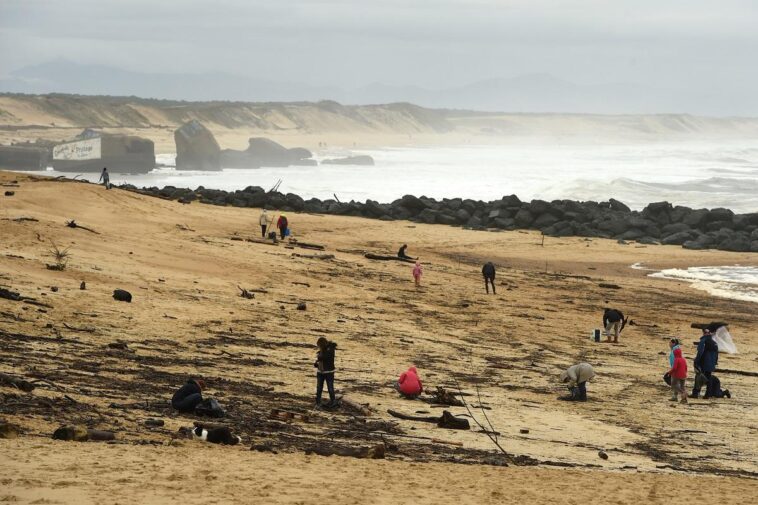Paris: During the past few days, sealed bags containing a total of 2.3 tonnes of cocaine have washed up on the shore of northern France, according to a source who is familiar with the discovery who spoke to the media on Thursday.
According to the person who spoke with AFP, the drug was discovered in two shipments of watertight packets on the shore of the English Channel in Normandy, the first on Sunday and the second on Wednesday.
It is estimated that the entire value of the cocaine on the market is 159 million euros (or 150 million euros).
On Sunday, a number of bags weighing a combined total of 850 kilogrammes were discovered on the beach at Reville, which is located close to the most northern point of Normandy. On Wednesday, six more bags were discovered on the beach at Vicq-sur-Mer, which is located nearby.
According to sources involved in the investigation, the police are still unsure of where the cocaine originated from and whether or not the traffickers intentionally tossed it overboard to escape capture or whether or not it became dislodged from their boats as a result of the heavy weather.
No additional drugs were found as of Thursday afternoon, according to the local maritime authorities who stated that they were conducting a “special watch” over the region using aeroplanes.
In 2019, a total of 1.6 tonnes of cocaine was discovered scattered all along the French Atlantic shore. This was the most recent occasion that a significant amount of cocaine washed up on the coast of France.
The government announced on Wednesday that it had discovered 27 tonnes of cocaine in 2018, marking a five-fold increase over the previous ten years. This comes at a time when Europe is facing an increase in the transportation and use of the drug.
Also read: Jack Daniel’s Forced To Halt Building Undertaking Over ‘Whiskey Fungus’
According to statistics provided by the Ministry of the Interior, seizures increased by five percent in comparison with 2021. More than half of the illicit substance originated in the West Indies and the impoverished South American region of Guiana, which is part of France.
As a result of the expansion of the black market trade, the majority of cocaine now reaches Europe through northern harbours such as Rotterdam, Antwerp, Hamburg, and Le Havre in France.




